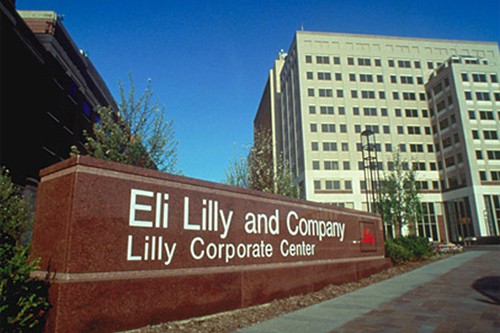
Eli Lilly took comfort from a stellar performance from diabetes drug Trulicity in the first three months of the year, just days after suffering a major setback with oral arthritis candidate baricitinib in the US.
Sales of GLP-1 agonist Trulicity (dulaglutide) climbed 160% to $373m in the first three months of the year, well ahead of analysts expectations after a somewhat disappointing last quarter and setting the drug on course to pass the $1bn sales threshold in 2017. Trulicity competes with Novo Nordisk’s rival drug Victoza, which has an estimated market share of almost 60% and made just under $3bn in sales last year.
New chief executive David Ricks needs the drug and other growth brands to fire on all cylinders to help Lilly ride through the recent disappointment of a surprise FDA rejection for Incyte-partnered baricitinib, which had previously been forecast to make $2bn or more in peak sales.
Trulicity’s strong form – coupled with forecast-topping 17% growth for Lilly’s insulin blockbuster Humalog to $708m and a $94m contribution from new psoriasis drug Taltz (ixekizumab) – helped Lilly boost revenues 7% to $5.23bn.
There was somewhat disappointing news on SGLT2 inhibitor Jardiance (empagliflozin) for diabetes however, sales nearly doubled to $74m but that was well shy of expectations given the drug’s impressive performance on improving cardiovascular outcomes in the EMPA-REG trial reported in 2015.
The problems affecting baricitinib in the US means that Lilly will be more dependent on a speedy uptake of Trulicity, Jardiance and Taltz – as well as late-stage breast cancer candidate abemaciclib – in the coming years.
On that score the US drugmaker has been buoyed by positive results from a late-stage trial of CDK4/6 inhibitor abemaciclib, with Lilly suggesting the data could make its drug a best-in-class treatment compared to Pfizer’s blockbuster drug Ibrance (palbociclib) and Novartis’ just-approved Kisqali (ribociclib).
The MONARCH-3 trial looked at adding abemaciclib to treatment with two aromatase inhibitors – letrozole and anastrozole – and compared the regimen to the aromatase inhibitors given alone in women with hormone-receptor-positive (HR+), human epidermal growth factor receptor 2-negative (HER2-) advanced breast cancer.
Interim data from the trial – whose primary endpoint is progression-free survival (PFS) – showed a clear benefit for Lilly’s drug according to the company, although it is not divulging details just yet. Analysts said the early read-out was unexpected and bodes well for the drug, which is due to be filed for approval in the US and EU later this quarter.




